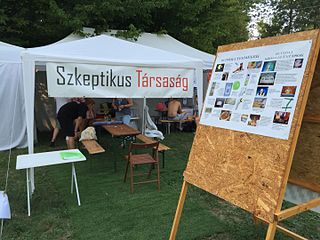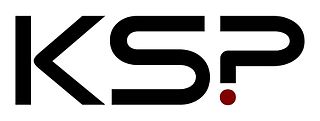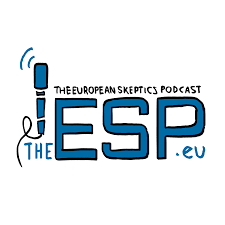This is a list of notable organizations that promote or practice scientific skepticism .
Contents
| Name (English / local (abbreviation)) | Founded | Region served | Notes |
|---|---|---|---|
| Association against Quackery / Vereniging tegen de Kwakzalverij (VtdK) | 1881 | Oldest skeptical organisation. [1] Member of ECSO.[ citation needed ] | |
| Association for Skeptical Enquiry (ASKE) | 1997 | Member of ECSO. [2] | |
| Australian Skeptics | 1980 | ||
| Center for Inquiry (CFI) | 1991 | | Global umbrella organisation based in Amherst, New York. |
| Committee for the Advancement of Scientific Skepticism (CASS) | 2010 | Part of Centre for Inquiry Canada. | |
| Committee for Skeptical Inquiry (CSI), formerly Committee for the Scientific Investigation of Claims of the Paranormal (CSICOP) | 1976 | Part of the Center for Inquiry. | |
| Committee Para / Comité Para [3] | 1949 | Member of ECSO. [2] Serves Wallonia and Brussels. | |
| Czech Skeptics Club Sisyfos / Český klub skeptiků Sisyfos (Sisyfos) | 1995 | Member of ECSO. [2] | |
| Dakshina Kannada Rationalist Association / தட்சிண கன்னட பகுத்தறிவாளர் ஒன்றியம் (DKRA) | 1976 | Member of FIRA. | |
| The Free Thought / De Vrije Gedachte (DVG) | 1856 | Focuses on atheism/secular humanism. [4] | |
| Edinburgh Skeptics Society (EdSkeptics) | 2009 | ||
| European Council of Skeptical Organisations (ECSO) | 1994 | A European umbrella organization, based in Roßdorf, Germany. | |
| Federation of Indian Rationalist Associations / இந்திய பகுத்தறிவாளர் ஒன்றியங்களின் பேரவை (FIRA) | 1997 | Indian umbrella organisation. | |
| Freedom From Religion Foundation (FFRF) | 1978 | Focuses on state/church separation, nontheism, and atheism. | |
| French Association for Scientific Information / Association française pour l’information scientifique (AFIS) | 1968 [5] | Member of ECSO. [2] | |
| German Society for Fighting Quackery / Deutsche Gesellschaft zur Bekämpfung des Kurpfuschertums (DGBK) | 1903 | Dissolved in 1934. | |
| Glasgow Skeptics | 2009 | ||
| Good Thinking Society | 2012 | ||
| Het Denkgelag | 2012 | ||
| Hungarian Skeptic Society / Szkeptikus Társaság (HSS) | 2006 | Member of ECSO. [2] | |
| Independent Investigations Group (IIG) | 2000 | ||
| Indian CSICOP | 19?? | Affiliated with CSI, member of FIRA. | |
| Indian Rationalist Association (IRA) | 1949 | Member of Rationalist International. | |
| Irish Skeptics Society | 2002 | Member of ECSO. [2] | |
| Italian Committee for the Investigation of Claims of the Pseudosciences / Comitato Italiano per il Controllo delle Affermazioni sulle Pseudoscienze (CICAP) | 1989 | Member of ECSO. [2] | |
| James Randi Educational Foundation (JREF) | 1996 | ||
| Launceston Skeptics | 2010 | ||
| Maharashtra Committee for Eradication of Blind Faith / Maharashtra Andhashraddha Nirmoolan Samiti (MANS) | 1989 | Member of FIRA. | |
| Merseyside Skeptics Society (MSS) | 2009 | ||
| MTÜ Eesti Skeptik (skeptik.ee) | 2007 | ||
| New England Skeptical Society (NESS) | 1996 | Fusion of three earlier organisations. | |
| New Mexicans for Science and Reason (NMSR) | 1990 | ||
| New Zealand Skeptics [6] (NZ Skeptics) | 1986 | ||
| Office for Science and Society (OSS) | 1999 | McGill University, Montreal. | |
| Philippine Atheists and Agnostics Society (PATAS) | 2011 | ||
| Polish Skeptics Club / Klub Sceptyków Polskich (KSP) [7] [8] | 2010 | ||
| Portuguese Skeptical Community / Comunidade Céptica Portuguesa (COMCEPT) | 2012 | ||
| Rational Alternative to Pseudoscience – Society for the Advancement of Critical Thinking / Alternativa Racional a las Pseudociencias – Sociedad para el Avance del Pensamiento Crítico (ARP-SAPC) | 1986 | Member of ECSO. [2] | |
| Rationalist Union / Union Rationaliste | 1930 | ||
| Richard Dawkins Foundation for Reason and Science (RDFRS) | 2006 | The American and British branches are independent. | |
| Science and Popular Enlightenment / Föreningen Vetenskap och Folkbildning (VoF) | 1982 | Member of ECSO. [2] | |
| Science and Rationalists' Association of India / Bharatiya Bigyan O Yuktibadi Samiti | 1985 | Based in Kolkata, West Bengal. | |
| SKEPP [9] | 1990 | Member of ECSO. [2] Serves Flanders and Brussels. | |
| Skepsis ry | 1987 | Member of ECSO. [2] | |
| Skepsis Foundation / Stichting Skepsis (Skepsis) | 1987 | Member of ECSO. [2] | |
| Skeptical Circle / Círculo Escéptico (CE) | 2006 | Member of ECSO. [2] | |
| Skeptic Society / Общество скептиков [10] | 2013 [11] | ||
| Skeptics in the Pub Online | 2020 | ||
| Society for the Scientific Investigation of Parasciences / Gesellschaft zur wissenschaftlichen Untersuchung von Parawissenschaften (GWUP) | 1987 | | Based in Roßdorf, Germany. Member of ECSO. [2] |
| The Skeptics Society | 1992 | Globally active, but mainly serves California. | |
| Young Australian Skeptics (YAS) | 2008 | ||
| Young Skeptics | 2015 | American after school program. | |













